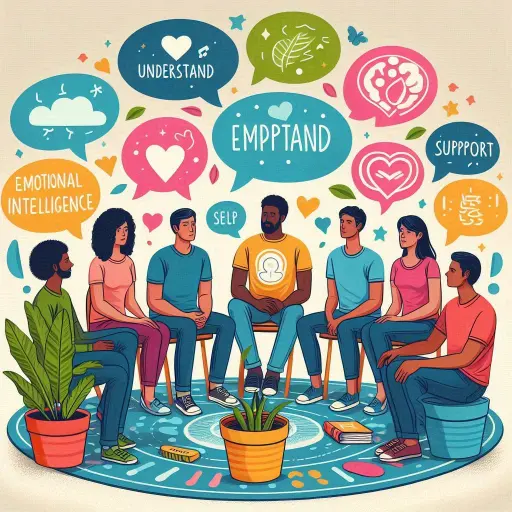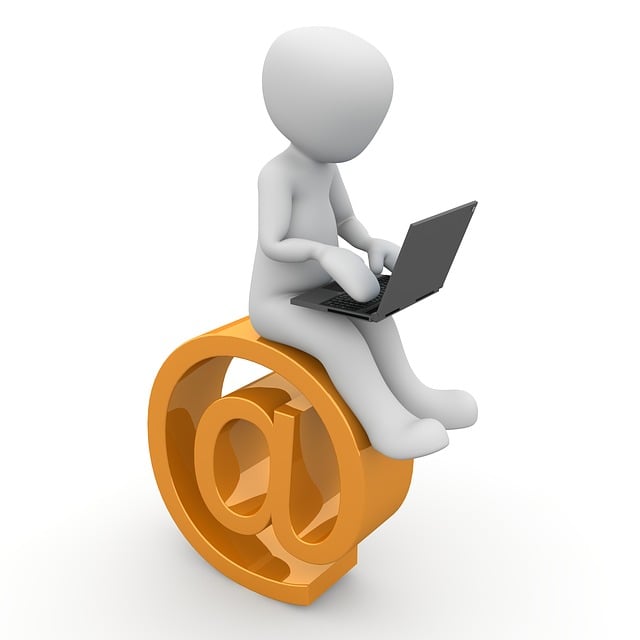Emotional intelligence: key to successful coaching and leadership development
The érzelmi intelligencia egyre nagyobb figyelmet kap a szakmai életben, de vajon miért olyan fontos ez a képesség? A válasz egyszerű: az érzelmi intelligencia lehetővé teszi számunkra, hogy megértsük és kezeljük saját érzelmeinket, valamint mások érzéseit is felismerjük és megfelelően kezeljük. Ez a készség kulcsfontosságú a hatékony vezetéshez, az eredményes csapatmunkához és a fenntartható üzleti sikerhez.
Mi az érzelmi intelligencia?
Az érzelmi intelligencia (EQ) a társas és érzelmi kompetenciák összessége, amely lehetővé teszi, hogy tudatosan figyeljük és szabályozzuk érzelmeinket. Ez a képesség magában foglalja az önismeret, az önszabályozás, a motiváció, az empátia és a társas készségek különböző aspektusait.
Az EQ fogalmát először Daniel Goleman népszerűsítette 1995-ben megjelent híres könyvében, Az érzelmi intelligencia. Goleman rámutatott, hogy az érzelmi intelligencia legalább olyan fontos, ha nem fontosabb, mint a hagyományos értelemben vett intelligencia (IQ) a sikeres élet és karrier szempontjából.
Miért fontos az érzelmi intelligencia a coachingban?
Önismeret és önszabályozás
The önismeret és önszabályozás alapvető fontosságú az érzelmi intelligencia szempontjából. Ahhoz, hogy valaki hatékony coach vagy vezető lehessen, ismernie kell saját érzelmi állapotait, értenie kell, hogy milyen hatással vannak ezek az érzelmek a viselkedésére és döntéseire. Az önszabályozás segít a stressz, az indulatok és az impulzivitás kezelésében, ami elengedhetetlen a távolságtartó, objektív és empatikus hozzáálláshoz.
Empátia és társas készségek
* coaching lényege, hogy megértsük az ügyfelet és olyan környezetet teremtsünk, amely elősegíti a növekedést és fejlődést. Az empátia, azaz mások érzéseinek felismerése és megértése, valamint a hatékony kommunikáció kulcsfontosságú ebben a folyamatban. Az érzelmileg intelligens coach képes megteremteni a bizalom légkörét, és olyan kapcsolatokat építeni, amelyek segítik az ügyfelet céljai elérésében.
Developing emotional intelligence
Bár az érzelmi intelligencia nagy részben velünk született adottság, a kutatások azt mutatják, hogy ez a képesség fejleszthető és tanulható. Íme néhány módszer az érzelmi intelligencia javítására:
Önreflexió és tudatosság
Az első lépés az önismeret fejlesztése. Figyeljük meg érzelmeinket, gondolatainkat és viselkedésünket különböző helyzetekben. Gyakoroljuk a meditációt vagy más tudatossági technikákat, amelyek segítenek megtanulni az érzelmek felismerését és szabályozását.
Empátia gyakorlása
Tanuljunk meg aktívan figyelni másokra és megérteni a viselkedésük mögött meghúzódó érzelmeket. Gyakoroljuk a szemkontaktust, a nonverbális jelzések megfigyelését és a helyzetbe való belehelyezkedést. Ez segít fejleszteni az empátiát és a társas készségeket.
Érzelmi intelligencia tréningek
Vegyünk részt érzelmi intelligencia tréningeken vagy workshopokon, amelyek gyakorlati módszereket kínálnak az EQ fejlesztésére. Ezek a tréningek gyakran szerepjátékokat, esettanulmányokat és más interaktív gyakorlatokat tartalmaznak, amelyek segítenek az új készségek elsajátításában és beépítésében.
Érzelmi intelligencia és coaching
* coaching alapvető célja, hogy segítse az ügyfeleket céljaik elérésében és a kívánt változások megvalósításában. Az érzelmi intelligencia ebben a folyamatban kulcsfontosságú szerepet játszik:
Kapcsolatteremtés és bizalom építése
Az érzelmileg intelligens coach képes mély, empatikus kapcsolatot kialakítani az ügyféllel, amely bizalmon és kölcsönös megértésen alapul. Ez a bizalom elengedhetetlen a hatékony coachinghoz és a tartós változásokhoz.
A personalised approach
Az érzelmi intelligencia lehetővé teszi a coach számára, hogy felismerje és alkalmazkodjon az ügyfél egyedi személyiségéhez, érzelmi állapotához és kommunikációs stílusához. Ezáltal a coach személyre szabott stratégiákat és módszereket alkalmazhat, amelyek maximalizálják a coaching hatékonyságát.
Motiváció és elkötelezettség
Az érzelmileg intelligens coach képes felismerni és kezelni az ügyfél érzelmi akadályait, valamint motiválni és ösztönözni őt a kitartásra és elkötelezettségre. Ez kritikus fontosságú a hosszú távú sikerhez és a fenntartható változásokhoz.
Érzelmi intelligencia és vezetői coaching
A vezetői vagy executive coaching segíti a vezetőket abban, hogy fejlesszék készségeiket, növeljék hatékonyságukat és jobban teljesítsenek. Az érzelmi intelligencia ebben a kontextusban is kulcsfontosságú:
Önismeret és önszabályozás a vezetésben
Az érzelmileg intelligens vezetők jobban ismerik saját erősségeiket és gyengeségeiket, valamint képesek szabályozni érzelmeiket és viselkedésüket még nagy nyomás alatt is. Ez a képesség elengedhetetlen a hatékony döntéshozatalhoz, a csapatok irányításához és a szervezeti változások kezeléséhez.
Empátia és kapcsolatépítés
A vezetők gyakran sokféle emberrel dolgoznak össze, ezért az empátia és a hatékony kommunikáció alapvető fontosságú. Az érzelmileg intelligens vezetők képesek megérteni a beosztottak érzéseit, motivációit és aggályait, ami szorosabb kapcsolatokhoz és elkötelezettebb csapatokhoz vezet.
Érzelmi intelligencia a változások menedzselésében
* executive coaching gyakran a változások kezelésére és a szervezeti átalakulásokra összpontosít. Az érzelmi intelligencia lehetővé teszi a vezetők számára, hogy megértsék és kezeljék a változásokkal járó érzelmeket mind saját magukban, mind a csapatukban, ami növeli a változtatási kezdeményezések sikerének esélyét.
Az érzelmi intelligencia hatása az üzleti életre
The érzelmi intelligencia nem csak a coaching és a vezetői fejlődés szempontjából fontos, hanem általánosságban az üzleti sikerben is kulcsfontosságú szerepet játszik. Nézzünk meg néhány példát arra, hogyan hat az érzelmi intelligencia az üzleti teljesítményre:
Jobb csapatmunka és együttműködés
Az érzelmileg intelligens munkatársak jobban fel tudják ismerni és kezelni egymás érzelmeit, ami javítja a csapaton belüli kommunikációt és együttműködést. Ez kritikus fontosságú a hatékony projektmenedzsment és a sikeres csapatmunka szempontjából.
Magasabb ügyfél-elégedettség
A szolgáltató szektorban az érzelmileg intelligens munkatársak jobban tudnak kapcsolatot teremteni az ügyfelekkel, felismerni és kezelni az ő érzelmeiket is. Ez javítja az ügyfélélményt és magasabb ügyfél-elégedettséghez vezet.
Hatékonyabb tárgyalás és konfliktuskezelés
Az érzelmi intelligencia segít felismerni és megérteni a tárgyalópartnerek érzelmi állapotát, motivációit és aggályait. Ez lehetővé teszi a hatékonyabb kommunikációt, a meggyőzőbb érvelést és a sikeresebb konfliktuskezelést.
Javuló döntéshozatal
Az érzelmileg intelligens vezetők objektívebben és kiegyensúlyozottabban tudnak döntéseket hozni, mivel jobban tudják kezelni saját érzelmeiket és indulataikat. Ez csökkenti a szubjektív torzításokat és növeli a döntéshozatal minőségét.
Javuló alkalmazkodóképesség
A gyorsan változó üzleti környezetben az érzelmileg intelligens egyének és szervezetek jobban tudnak alkalmazkodni a változásokhoz. Képesek felismerni és kezelni a változással járó érzelmeket, ami elősegíti a sikeres átalakulást.
Hogyan fejleszthető tovább az érzelmi intelligencia?
Bár az érzelmi intelligencia jelentős része velünk született adottság, a kutatások azt mutatják, hogy ez a képesség fejleszthető és tanulható egész életünk során. Az alábbiakban néhány módszer az érzelmi intelligencia fejlesztésére:
Önreflexió és tudatosság gyakorlása
A rendszeres önreflexió és tudatosság gyakorlása kritikus fontosságú az érzelmi intelligencia fejlesztésében. Tanuljunk meg figyelni és felismerni érzelmeinket, gondolatainkat és viselkedésünket különböző helyzetekben. A meditáció, a tudatos légzés vagy más tudatossági technikák hatékony módszerek erre.
Visszajelzés kérése és elfogadása
Kérjünk rendszeres visszajelzést másoktól, például kollégáktól, vezetőktől vagy akár barátoktól, családtagoktól. A visszajelzések segíthetnek felismerni érzelmi vakszigunkat és azon területeket, ahol fejlődnünk kell. Legyünk nyitottak a visszajelzésekre és fogadjuk el azokat fejlődési lehetőségként.
Empátia gyakorlása mindennap
Gyakoroljuk az empátiát a mindennapokban. Figyeljünk jobban másokra, próbáljuk megérteni viselkedésük mögött meghúzódó érzelmeket és motivációkat. A szemkontaktus, a nonverbális jelek megfigyelése és a helyzet átérzése mind segíthet ebben.
Érzelmi intelligencia tréningek és coaching
Vegyünk részt célzott érzelmi intelligencia tréningeken, workshopokon vagy akár coachingban. Ezek a programok gyakorlati módszereket kínálnak az érzelmi készségek fejlesztésére, például szerepjátékokat, esettanulmányokat és egyéb interaktív gyakorlatokat.
Olvasás és tanulás
Olvassunk könyveket, cikkeket és kutatási anyagokat az érzelmi intelligenciáról. Tanuljunk meg többet az érzelmeink természetéről, az érzelmi készségek fejlesztéséről és arról, hogyan hat mindez az üzleti teljesítményre.
Az érzelmi intelligencia kulcsfontosságú a személyes és szakmai sikerhez. Fejlesszük ezt a képességet, és tapasztaljuk meg az előnyeit mind a coaching folyamatokban, mind az élet egyéb területein!
Summary
Az érzelmi intelligencia a személyes és szakmai sikerhez vezető út egyik legfontosabb eleme. Míg az IQ meghatározza a kognitív képességeket, az érzelmi intelligencia azokat a társas és érzelmi készségeket foglalja magában, amelyek lehetővé teszik az emberi kapcsolatok építését, a hatékony kommunikációt és a motiváció fenntartását.
Gyakori kérdések az Érzelmi Intelligenciával kapcsolatban
Milyen szerepet játszik az érzelmi intelligencia a coach és az ügyfél közötti kapcsolatban?
Az érzelmi intelligencia kulcsfontosságú a coach és az ügyfél közötti bizalom és kapcsolat kialakításában. A coach empátiája, önismerete és érzelmi szabályozó képessége lehetővé teszi, hogy mély, támogató kapcsolatot alakítson ki, amely elősegíti a hatékony coachingot.
Hogyan segíthet a vezetőknek az érzelmi intelligencia a nehéz döntések meghozatalában?
Amikor nehéz döntéseket kell meghozni, gyakran erős érzelmek lépnek fel, például stressz, aggodalom vagy frusztráció. Az érzelmileg intelligens vezetők képesek ezeket az érzelmeket felismerni és szabályozni, így objektívebben és kiegyensúlyozottabban tudnak dönteni.
Milyen konkrét gyakorlatokat alkalmazhatnak a coachok az ügyfelek érzelmi intelligenciájának fejlesztésére?
A coachok többféle gyakorlatot alkalmazhatnak, mint például a szerepjátékok, az érzelmek tudatos megfigyelése, a meditáció és más tudatossági technikák, valamint a rendszeres visszajelzés és önreflexió. Ezek a gyakorlatok segíthetnek az önismeret, az önszabályozás, az empátia és más érzelmi készségek fejlesztésében.
Hogyan tudják a szervezetek integrálni az érzelmi intelligenciát a vezetőfejlesztési programjaikba?
A szervezetek beépíthetik az érzelmi intelligencia fejlesztését a vezetőképzési programjaikba különböző módokon: érzelmi intelligencia tréningek, coaching, 360 fokos visszajelzések, szerepjátékok, esettanulmányok és más élményalapú tanulási módszerek alkalmazásával.
Hogyan kapcsolódik az érzelmi intelligencia a változásokhoz való alkalmazkodáshoz a szervezetekben?
A változások általában erős érzelmeket váltanak ki az emberekből, mint a bizonytalanság, a frusztráció vagy az ellenállás. Az érzelmileg intelligens vezetők fel tudják ismerni és kezelni ezeket az érzelmeket – saját magukban és a csapatukban is – ami megkönnyíti az alkalmazkodást és növeli a változási kezdeményezések sikerességét.






















